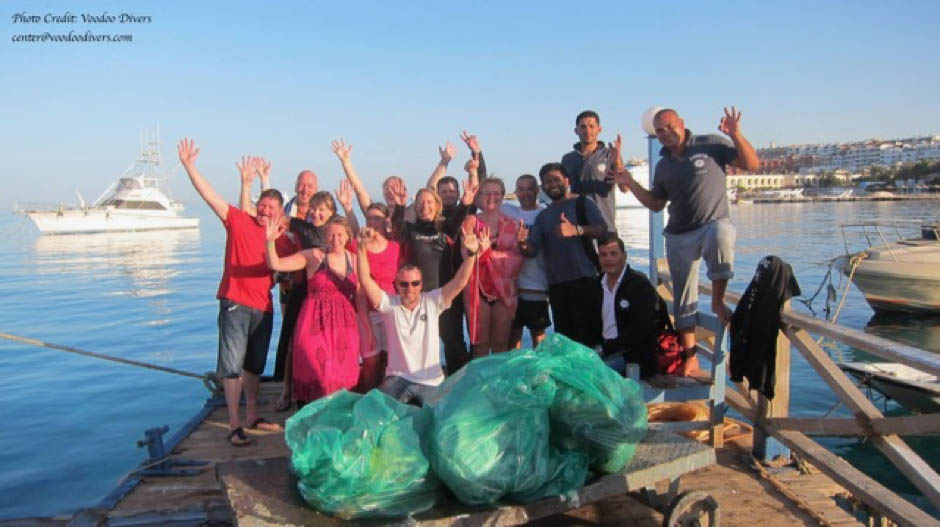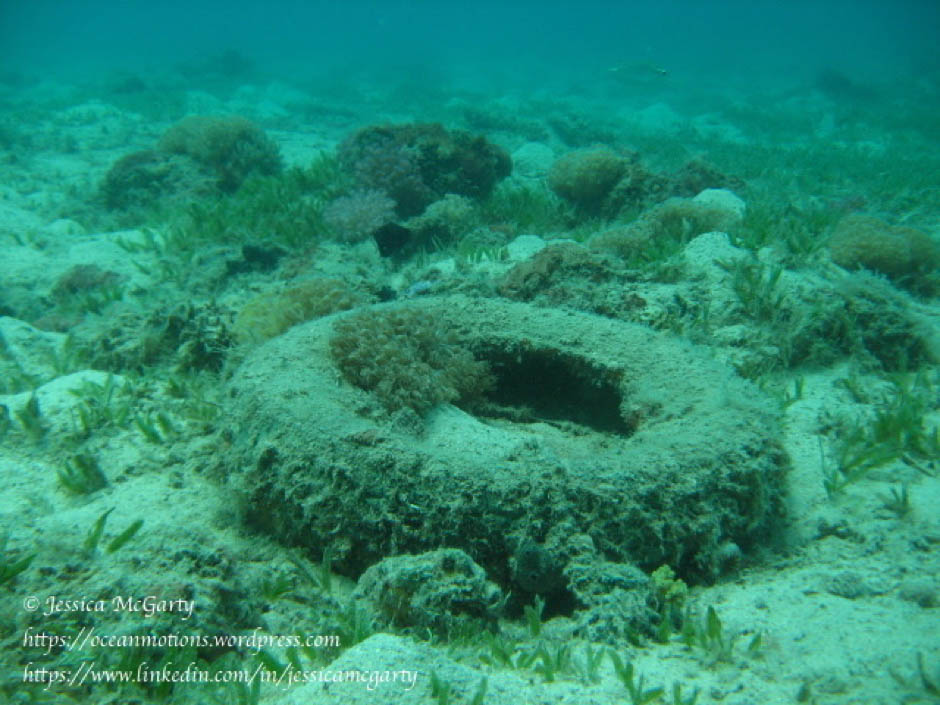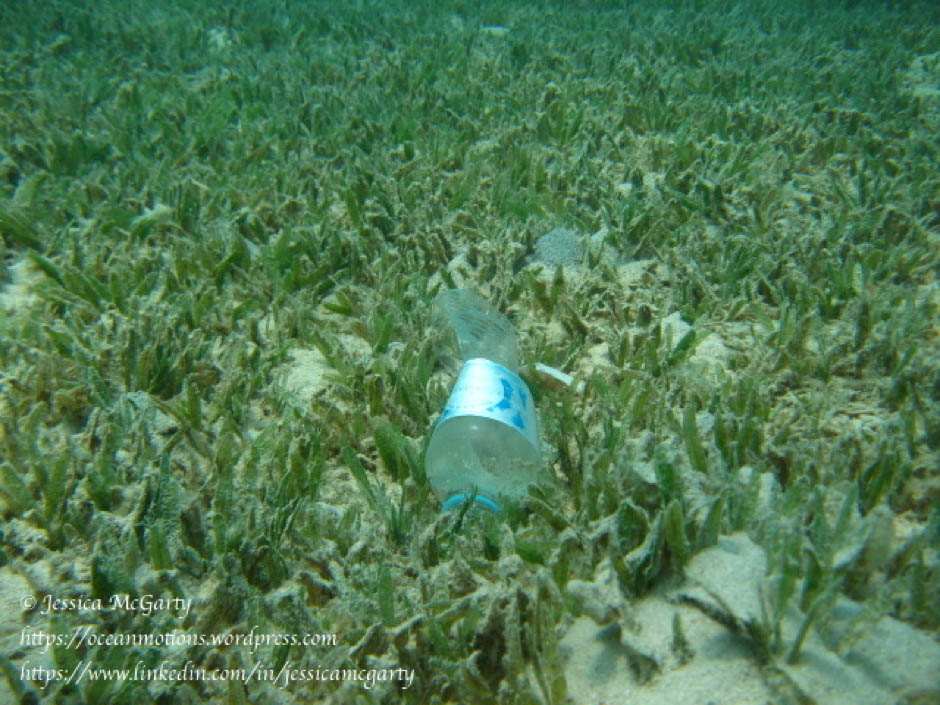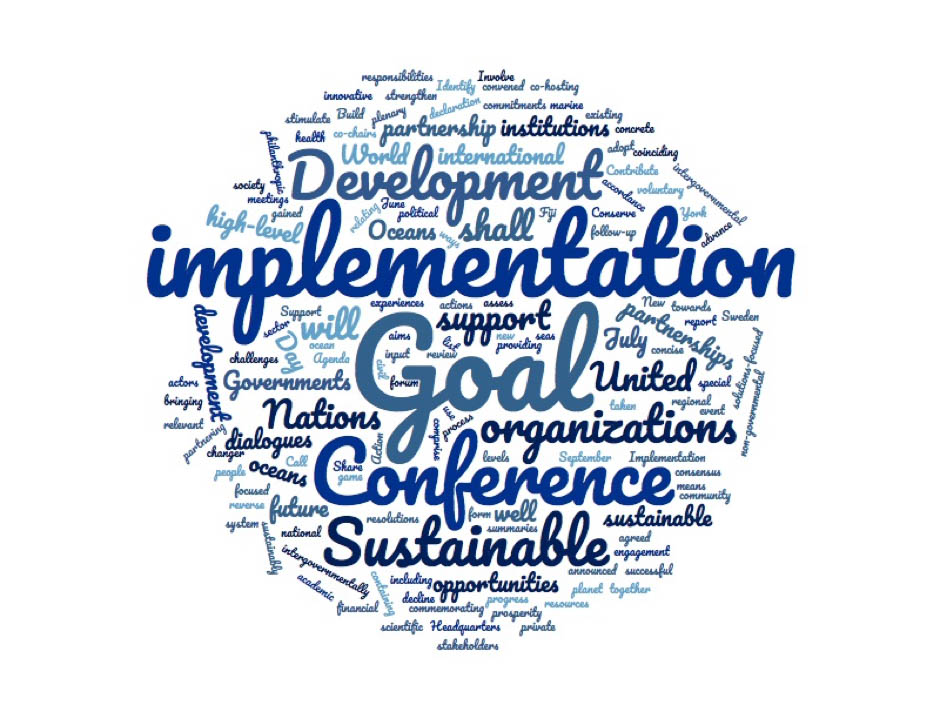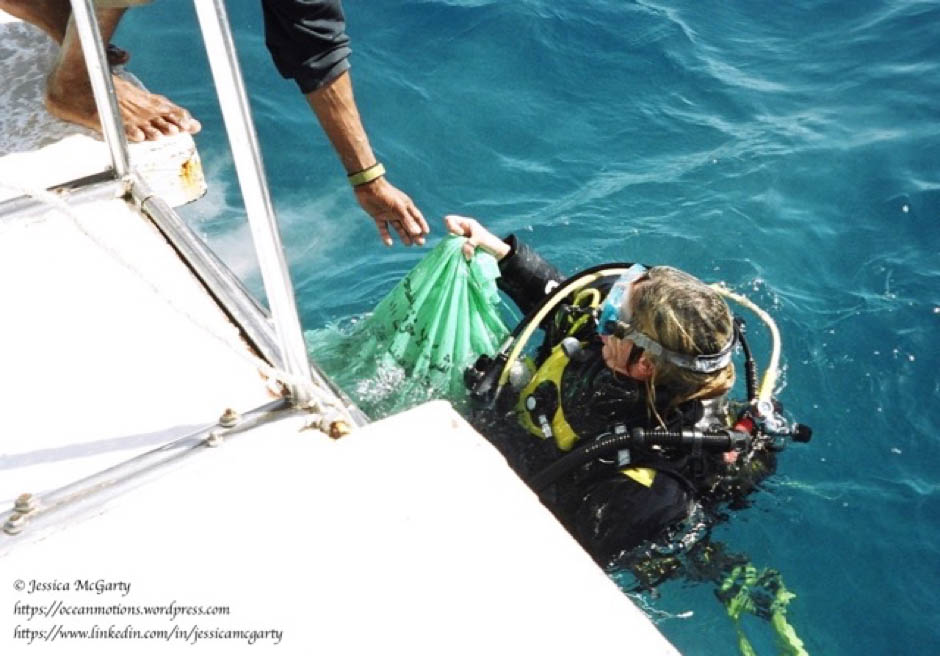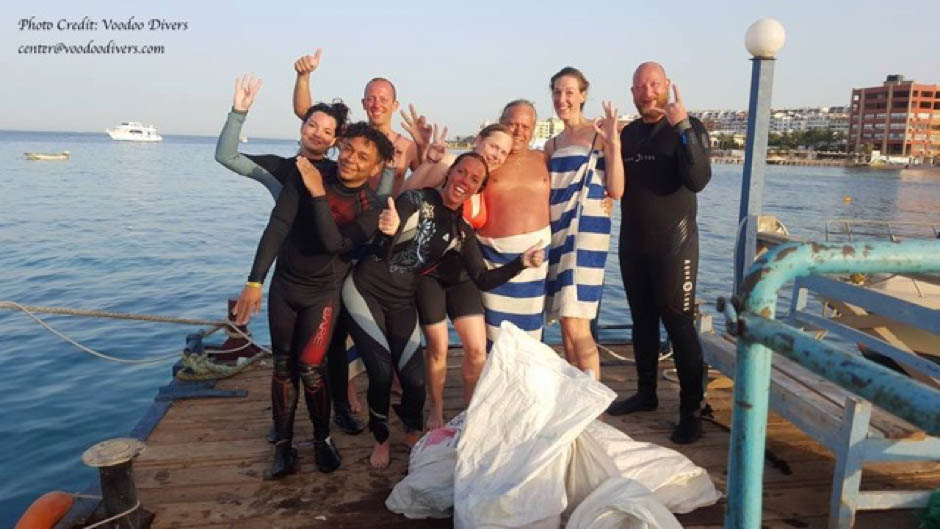Some thoughts on rubbish in the marine environment and how we can help stem the flow.
For several years, I have been trying to reduce my environmental footprint and live more sustainably, with some successes and several epic fails! I can be stubborn at times, just ask anyone who knows me, but this means that I will persevere with my efforts and maybe my successes will be less limited and there will also be fewer epic fails. Persistence is my middle name, don’t you know?
My interest in sustainable coastal and marine resource management prompted me to follow my present course of Reduce, Refuse, Reuse, Repurpose, Recover, and Recycle. Being a scuba instructor, I have seen first-hand the devastating effects of rubbish and litter on our coasts and oceans.
The new sustainable development goals forming Agenda 2030 were adopted in September 2015 and, for the first time, a goal dedicated to sustaining the oceans was introduced: Goal 14. The first target of this Goal is to:
“prevent and significantly reduce marine pollution of all kinds, in particular from land-based activities, including marine debris and nutrient pollution”.
The UN estimates that around 80% of marine pollution derives from land-based sources and that plastics in particular negatively affect marine ecosystems to the tune of losses of around $13 billion. They also estimate that the global plastics recycling rate is only around 25% of production. That’s an awful lot of rubbish that could have the ‘R’ treatment in some way, and an awful lot of money ‘going down the drain’, so to speak!
Plastics have become so much a part of our daily lives, we tend to forget that we used to manage very well without them. In fact, the first mass produced plastic, Bakelite, was only introduced around 100 years ago. World Economic Forum emphasises that plastic production has increased from around 15 million tonnes in 1964 to 311 million tonnes in 2014. That’s a twenty-fold increase in 50 years! Current production is expected to double in the next 20 years and this means we have to take a long, hard look at the way we live and consume.
National governments are starting to look at ways to combat plastics entering our environment, as are international and non-governmental organisations. To support the implementation of SDG 14, the Ocean Conference will be convened from 5-9 June this year, coinciding with World Oceans Day, and marine rubbish will definitely be on the agenda. Not only does rubbish have a detrimental effect on both the terrestrial and marine environments, but it also affects our health and wellbeing.
Furthermore, local initiatives are working tirelessly on the ground with communities, and people like you and me are making their own individual ‘statements’ in the fight against marine rubbish. Here are a few small steps I’m now taking to lead a healthier and more sustainable life (it’s easier than you think, once you develop your system!):
- I carry a re-useable cloth bag with me and will not take a plastic shopping bag from a store unless there is no other option;
- I return food packaging to my local supermarket, or just empty fruits and veggies directly into my cloth bag and leave the packaging at checkout (they think I’m a bit nutty but they do re-use the polystyrene trays);
- I re-use any plastic shopping bags at least once;
- I have a re-useable water bottle (yes, it’s plastic, but I am re-using it);
- I refuse straws, and other fancy ornaments, with drinks;
- I try to buy clothing made from natural materials such as cotton and will ask retailers if I am not sure something is natural (synthetic clothing releases plastic and other unnatural fibres when washed and these eventually reach our ocean, and who wants to wear a plastic bag anyway?!);
- Any clothing, shoes, electronic or household goods that I don’t need or that are broken could be re-purposed (old clothes can be used as cleaning cloths, for example);
- These old, broken or unwanted items may well also be ‘gold’ for someone else so, if I can’t re-purpose, I give away items to friends or charity;
- I do not upgrade my personal electrical devices whenever a newer version is released and use my existing devices for as long as possible;
- I am careful about my choice of personal hygiene and beauty products (and have started making some of my own from fruits, veggies and spices … bananas are great!);
- I am careful about my choice of household cleaning products (vinegar and baking soda are staples for most cleaning tasks).
As well as changing my ‘landward’ behaviour, I also participate in beach and underwater clean-ups. There is a particular day in September allocated for the International Clean-up Day. Established for more than 30 years, it is estimated that this action day is now the largest volunteering effort in the world. However, due to the realisation that marine debris is far more pervasive than previously thought, it is now encouraged to do whatever you can, when you can. Clean-ups can be organised on any day or days that suit you and your like-minded group of friends.
To participate or maybe even organise a clean-up you can check out the links below for more information:
- Clean Up the World encourages community groups, businesses, schools and local government to join and become involved in local clean-up projects;
- International Coastal Cleanup is coordinated by the Ocean Conservancy and involves participants worldwide in litter surveys and beach cleans;
- Dive Against Debris involves thousands of dive volunteers recording and removing trash from sites worldwide and is coordinated by Project AWARE.
A dive centre where I spend much of my time at the moment, Voodoo Divers in Hurghada, Egypt, organises weekly clean-ups during busy periods and less often in quieter times. Guests are offered a free dive to clean the underwater area of the hotel beach and marina. It is a great way to engage people, do some good and have fun at the same time.
I am constantly looking for more ways to reduce my impact and make my life simpler, more natural and, hence, healthier and easier. I’m certainly not perfect, but who is? I do what I can and you can too! It’s not that difficult and you will be helping yourself, as well as the marine environment.
Below you will find some useful links to inform and help you live the ‘Good Life’, for yourself, as well as for nature:
Marine Conservation Society UK
References
The Ocean Conference (https://oceanconference.un.org) website.
United Nations Development Programme (www.undp.org) website.
United Nations Environment Programme (www.unep.org) website.
World Economic Forum (https://www.weforum.org) website.



